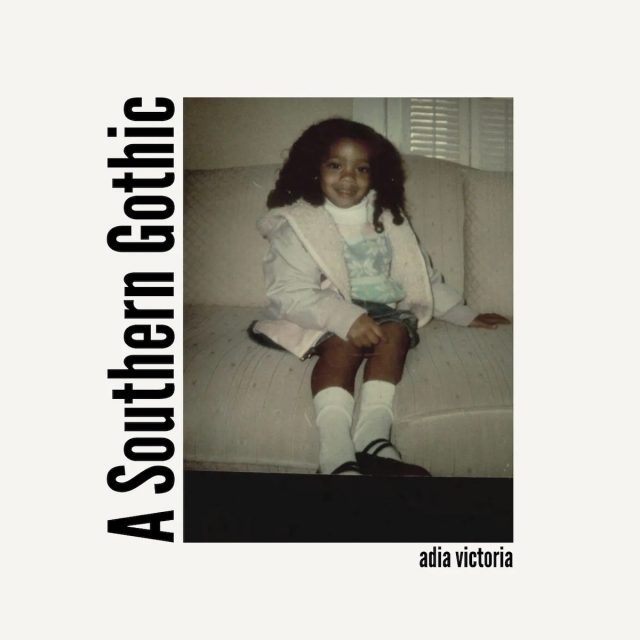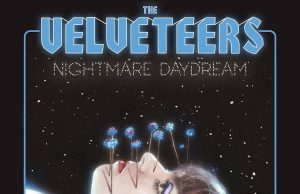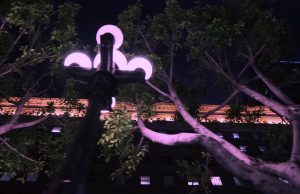THE EDITED PRESS RELEASE: “Adia Victoria’s third studio album A Southern Gothic was executive produced by T Bone Burnett, and features guest contributions from Jason Isbell, Margo Price and The National’s Matt Berninger.
With A Southern Gothic, Victoria continues her journey through the conflicts of the American South and the troubling resonance of its past. Sonically, the album is full of frequent juxtaposition. It is equal parts historical montage and modern prophesy, dark and light, love and loathing. The 14 tracks are the musical embodiment of the relationship that so many people, especially Black women, have with the South.
During the writing process, Adia listened to Alan Lomax’s old field recordings and the sounds became the heartbeat of her new music, upon which she and creative partner Mason Hickman later layered other parts. And in many ways, the story of working with Hickman to write and produce A Southern Gothic is as critical to the project as the stories Victoria tells across the album. Recording for A Southern Gothic began in Paris in 2019/early 2020, and it was while in France that Victoria discovered a sense of clarity about her home that she didn’t always have when she was writing from her home. “I would say that the philosophy behind this record is, ‘Necessity is the mother of invention,’ ” she says. “It’s also, ‘When you don’t have excess, when that’s all stripped away, what you gon’ do with that?’ What art can you make from walking through your mother’s garden?”
Without excess or access — to musicians, producers, studio — Victoria and Hickman became a two-man band of sorts, connecting over Victoria’s collection of Southern tales as they tried to keep the pandemic from killing them. Hickman taught himself mandolin and banjo while Victoria cut drum and piano parts. And later, even when the world began to re-open, vaccines became available, and Victoria was able to get in the studio with T-Bone Burnett, the recordings that Victoria and Hickman had done on their own remained.
“I wanted the album to be a time stamp of where I was in 2020,” Victoria says. “I wanted to pay homage and be honest to what I had to work with. I didn’t feel the need to go back and change it and pretty it up. It was honest and it was true.”

The result is a project that fits perfectly into Victoria’s catalogue and the rich legacy of Black Southern storytelling, even as it stands alone as a freshly innovative work. Burnett says, “Adia Victoria sings on an arc between Memphis Minnie and Sojourner Truth.” Adds Victoria: “With this project, I was so anchored in the past and the Black brilliance that came before me that it was kind of a road map. They said, ‘Sweetie, we’re gonna locate you, and we’re gonna allow you to move it forward.’ ”
Discussing the first single Magnolia Blues, she says: “In an unpublished manuscript in 1933, William Faulkner spoke on the Southerner’s ‘need to talk, to tell, since oratory is our heritage.’ After a year spent in my room in Nashville, I wondered what stories I had to tell. Often the only view of the South beyond my window was the magnolia tree in my backyard. It blocked the rest of the world from my sight. I limited my gaze to its limbs, its leaves and the obscene bloom of its iconic white flower.
“The magnolia has stood as an integral symbol of Southern myth making, romanticism, the Lost Cause of the Confederates and the white washing of Southern memory. Magnolia Blues is a reclaiming of the magnolia — an unburdening if its limbs of the lies it has stood for. This song centers the narrative of a Black Southern woman’s furious quest to find her way back home to the South under the shade of her magnolia.
“Magnolia Blues is an ode to Southern Black folk — too often hemmed out of what we mean when we say ‘Southerner’ — and it is also an ode to the South itself. To rescue it from — in the words of William Faulkner — ‘a make believe region of swords and magnolias and mockingbirds which perhaps never existed.’ ”
A Southern Gothic is Adia’s third album and marks the follow up to 2019’s critically acclaimed Silences, produced by Berninger’s bandmate Aaron Dessner. Around its release, The Songwriters Hall of Fame presented Victoria with the Holly Prize which recognizes and supports a new “all-in songwriter.” She toured the U.S. and Europe on the Dope Queen Tour, and appeared on The Late Show With Stephen Colbert. Last year saw her participate in a panel discussion, Black Equity in Americana: A Conversation, hosted by the Americana Music Association and moderated by Marcus K. Downling.”












































